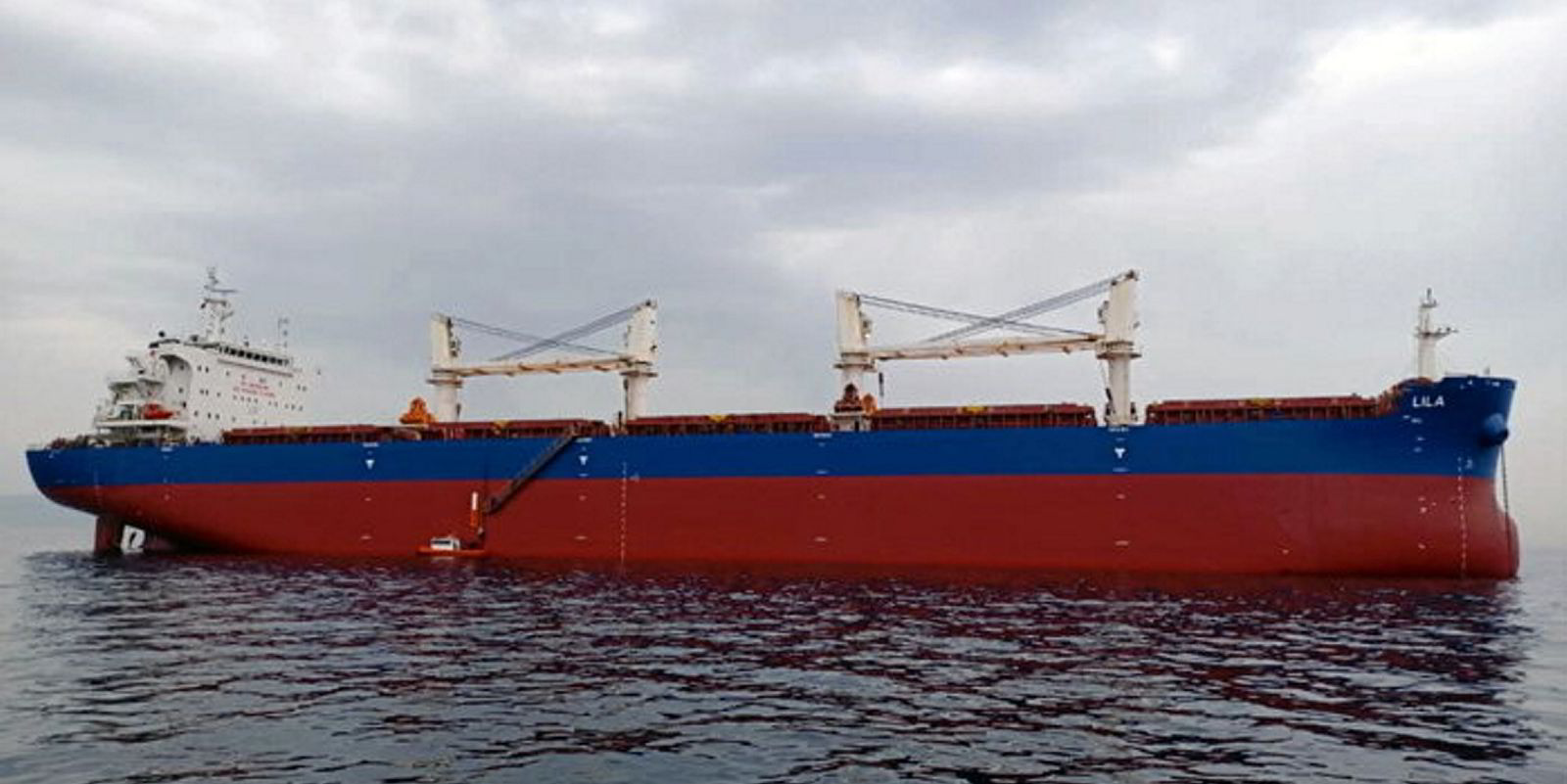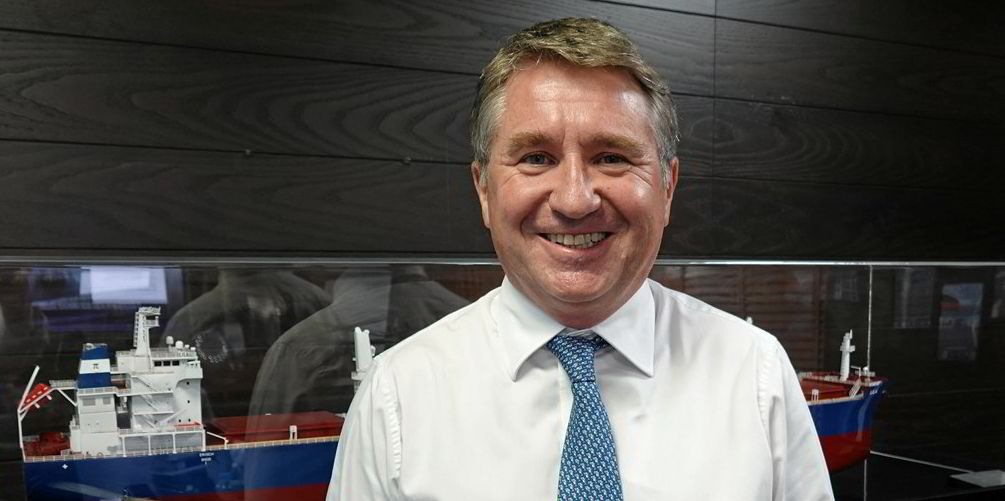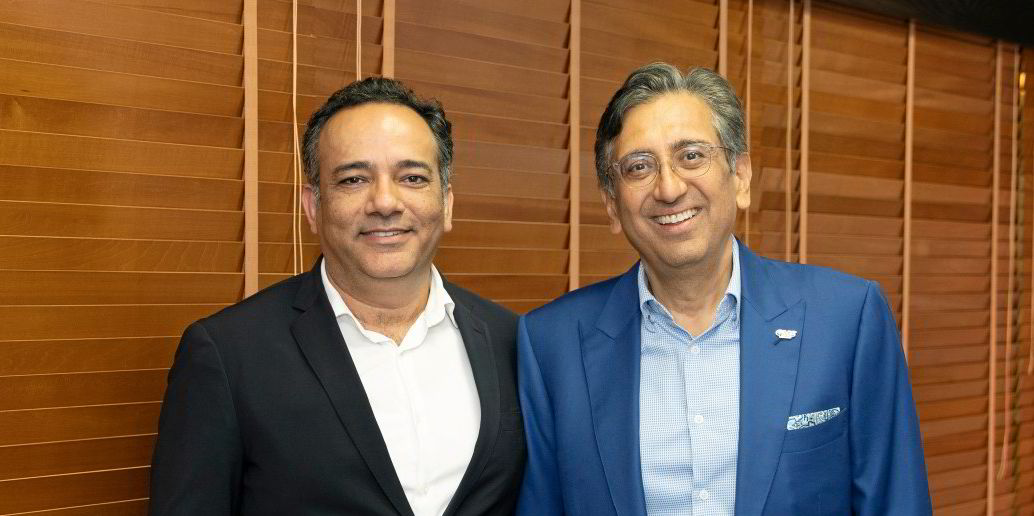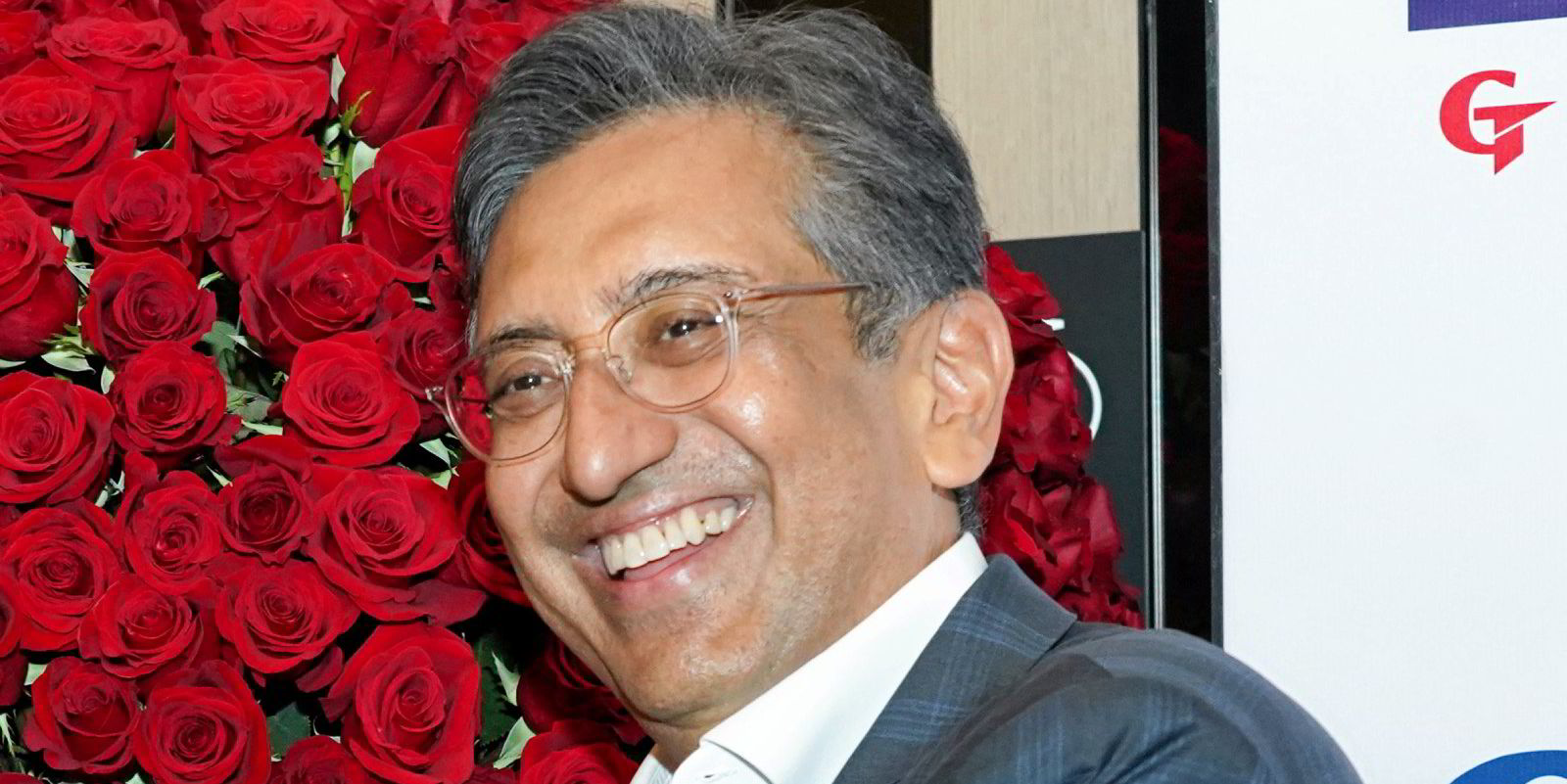Industry veteran Steve Kunzer has big ambitions for Dubai-based Lila Global, the shipowning subsidiary of cash buyer GMS. As chief executive, he wants to turn the company into a top-tier shipowner.
Why Anil Sharma recruited Kunzer back in January is easy to understand. During the decade that Kunzer was at the helm of Idan Ofer’s Tanker Pacific, starting in 2008, he transformed what was then a sizeable tanker company into a multi-sector shipping giant that today is known as Eastern Pacific Shipping.
Kunzer bided his time between stepping down at Eastern Pacific in 2018 and joining Lila Global, serving as a non-executive board member of Braemar Shipping Services and Norden and as an advisor to MPC Container Ships.
Lila Global’s roots stretch back to 2006, when Sharma, a cash buyer, started dabbling in shipowning. It was kept as a small sideline business until three years ago, when it started to rapidly grow into a large, diversified shipping company. Growth came mostly through the prolific purchasing of middle-aged to vintage tanker and bulker assets.
Until Kunzer came on board, Lila Global was managed by GMS’ senior management, with the growth charge led by its chief operating officer Nitin Mehta.
This structure worked well when the shipping company was in its initial growth phase, but with close to 40 ships on the water, and big ambitions to grow the company further, Sharma and the GMS executive team decided it needed its own dedicated management team to “professionalise” the operation.
Kunzer, in an exclusive interview with TradeWinds, said he liked what he saw at Lila Global.
“It is an opportunity to build a company. We want to expand; we want to add tonnage. We want to get to 70-plus ships within a few years,” he said.
“I come from a background of having done that at Eastern Pacific. We professionalised it by putting in place the procedures and governance to allow it to expand the way it did, making it even better than it was. I can do the same right here, which is great — I want to be in a role where I am growing the business.
“We’re going to take Lila Global to great places.
“The message I really want to convey is we’re expanding, and we are going to be big. We’re going to move forward, get more ships, do more business, fix with quality charters, provide a high-quality service, maintain the ships well and spend money on them.
“We’re hiring people, getting the right team in place so we can take it forward, make connections, make the right decisions, and have the right procedures and governance.”
In short, Kunzer’s goal is to turn Lila Global into a company that is able to stand on its own two feet.
“My first months here have been really great,” he said. “I am spending most of my time internally managing.
“There is a lot in the way of procedures and governance to formalise, and people to upskill. It means that we are putting everything into place so that it is easy to add ships.”
Younger age profile

Lila Global has a fleet of about 40 vessels comprising bulkers, tankers, container ships, an LNG carrier and a cruise ship.
Most of these are in the middle to old age end of the spectrum, although the company has invested heavily in them, especially the ships it intends to keep long term.
“In terms of energy-efficient technology, we are refitting the ships to reduce our carbon footprint,” Kunzer said.
“We are spending money on equipping them with propeller boss cap fins and low-friction paint.
“We are spending money on crew welfare to make them feel as though they belong more to us as a company. We are improving their facilities and providing onboard internet. I am a firm believer that if you take good care of your crew, they will take good care of your ship.”
Since Kunzer joined in February, Lila Global has added several older capesizes and a few supramax bulkers, a couple of container ships and an LNG carrier.
It has also offloaded its older tankers, leaving it with three J19 chemical tankers, a suezmax and a VLCC.
“It’s not that we’ve lost interest in tankers,” Kunzer said. “It’s just that elderly tankers are harder to operate unless you’re doing dark trades, which we’re not going to do.
“Not only are older tankers harder to operate, but they are also harder to sell. People who pay the premium prices buy for the dark trades. Whether it’s Russia, Venezuela or Iran, people are buying against it. We’re not going to sell to people like that. Anil [Sharma] is a US citizen, and I am British, so no way!”
Although Lila Global’s focus has been on older assets, Kunzer wants the company to buy newer ships.
“Going forward, to expand the fleet, we will look at buying more modern ships at the right price,” he said. “I think it just depends on what’s available. There are ships in our fleet that were ordered as newbuildings, so it is not inconceivable that we may take that route.
“If you look at the Greeks and others, over the years, they’ve gone from operating older ships and moved up the food chain into operating and owning new ones. So, we’ll just buy value, where we see value. Shipping is all about buying at the right price and operational cost-effectiveness.”
Kunzer stresses that a younger fleet will help Lila Global achieve greater balance in vessel employment, which until now has been heavily orientated towards the spot market. He would like the company’s chartering activities to be more period focused but, for that, he said it needs younger ships as it is harder to charter out older ships on period.
“It’s all part of a new strategy going forward and a new strategy for the organisation,” he said.







